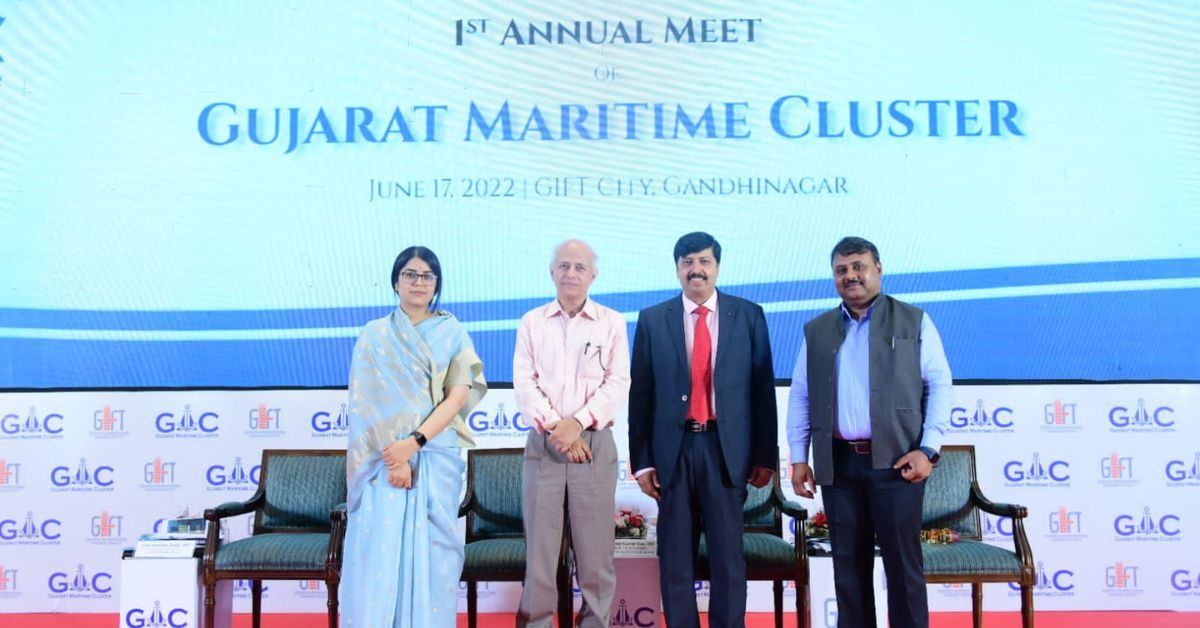The First annual meeting of Gujarat Maritime cluster (“GMC or cluster”) was held in the backdrop of significant advances in the maritime eco system. The report of IFSCA on ship acquisition, financing and leasing (SAFAL) has been submitted and is under consideration. The Gujarat Maritime University (GMU) has now successfully established two important program: LLM and MBA. GMC now has over 50 members and is growing, and it is the endeavor of the cluster to reach out to as many players as possible in order to promote the cluster and many benefits that accrue by being associated with it. The key offering of the cluster is the potential to leverage the advantages offered by collaboration between different players in the maritime eco system by knowledge sharing, skill updating and the ability to project power as a cohesive force. GMC will also prove to be invaluable for promoting its members and its services in global maritime arena, including international conferences and exhibitions. Importantly, GMC provides an opportunity for members to be physically present in the custom built business city of GIFT. The activities already enabled by IFSC, include the Alternate Investment Funds (AIFs), capital markets, offshore banking and insurance companies. The eco system of these financial service players and associated infrastructure will prove invaluable for GMC members.
The first session was to explore the verticals of Freight forwarding, NVOCC, Agency, Shipbroking, marine outsourcing, marine insurance and maritime legal services in the context of Indian entities providing these services to global clients. While the Indian maritime industry has performed an excellent task in servicing the local Indian eco system, it has fared poorly in venturing out and expanding its services to overseas clients in foreign land. The reasons are varied, including the fact that India itself is a big market. However, one of the key reasons is also the lack of a dedicated platform which can act as a spring board for maritime ventures in India to offer services globally. This gap was discussed in the context of GIFT IFSC and how GMC can act as an effective platform for Indian entities to venture global maritime markets. The ‘wishlist’ of the Industry in the context of regulatory requirements from GIFT IFSC was discussed, as was the potential for GMC to fill up the skill and physical infrastructure gap.
The second session discussed the importance of maritime cluster planned at GIFT IFSC in the context of ship owning, ship leasing and associated maritime industries. The learnings from global maritime commercial hubs and were discussed, along with the ‘wishlist’ of the industry in terms of activities to be enabled at IFSC. The panel also discussed possible ways to attract ship owning and leasing companies in the ecosystem, especially Indian companies based abroad. The significance of GIFT infrastructure and relevance of GMU and skill development in this context was also discussed. The role of GIMAC and enabling a credible maritime arbitration system within GMC was discussed, along with its significance for the cluster. It was mentioned that the existing ecosystem of offshore banking, insurance and capital markets would help maritime players to access international financial services.






